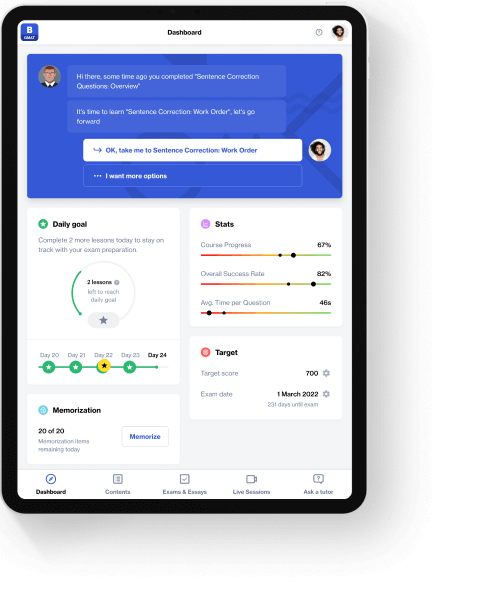Critical Reasoning: Conclusion Strengthening Questions
Music education should be offered to children at an early age as part of the school syllabus. Psychologists working with children have found that interaction with sound and music at early stages of development can stimulate thought in ways that greatly enhance learning skills. In the same study, it was noted that since playing music involves active and passive coordination, and is usually enjoyed by children, it creates a suitable setting for intelligence development. However, in most schools, extra-curriculum activities are largely sports-related, with music being an elective subject.
Which of the following, if true, supports the argument's conclusion?
Incorrect.
[[snippet]]This answer choice presents information that is irrelevant to the argument and to our task. Focus on the conclusion. It has nothing to do with adults. You should be looking for an answer choice that supports this conclusion.
Incorrect.
[[snippet]]This answer choice presents information that is irrelevant to the argument and to our task. Focus on the conclusion. It has nothing to do with sport. You should be looking for an answer choice that supports this conclusion.
Incorrect.
[[snippet]]At best, this answer choice neither weakens nor strengthens the conclusion, as it revolves around private tutoring of music. It could also be seen as weakening the conclusion by showing that more of the pedagogic benefits of music are achieved when music is taught by a private tutor. In other words, children who learn music in school may not enjoy these benefits or only partially enjoy them.
Incorrect.
[[snippet]]This answer choice weakens the argument's conclusion by revealing the shortcomings of the author's plan - it will require much work.
Fantastic work!
[[snippet]]This answer choice supports the author's suggestion that music be taught at schools. If music creates dynamics that in turn improve learning (as stated in this answer choice), then it is clear that a school can gain a lot from introducing music into its syllabus.
